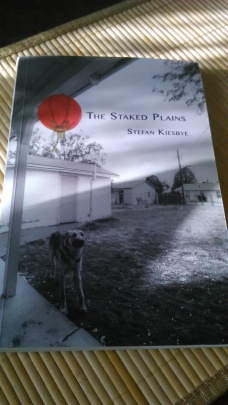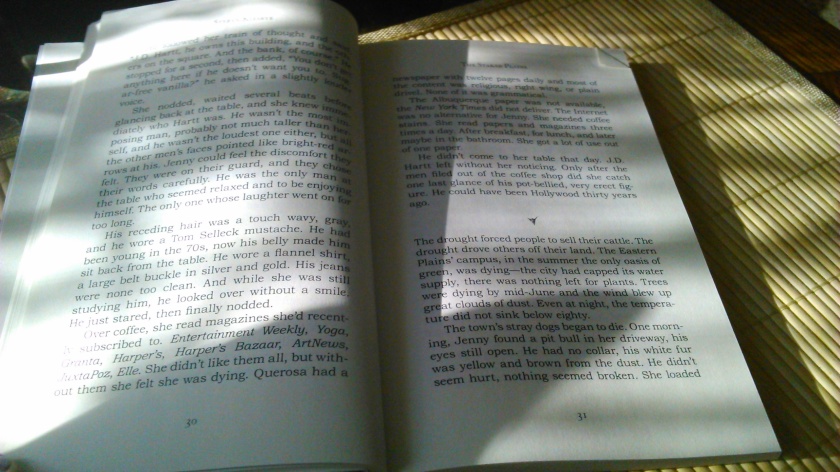Zunächst einmal: Fröhliche Ostern euch allen! Genießt euer Wochenende 🙂
First of all: Happy Easter to all of you! Enjoy your weekend 🙂
***
Heute möchte ich euch zwei wundervolle Bücher vorstellen, die den Leser fesseln, in die Geschichte ziehen und bis zum Ende nicht wieder loslassen. Und das auch, weil sie ähnliche Themenspektren behandeln, aber doch unterschiedlicher nicht sein könnten.
Today I would like to recommend to you two wonderful books, who grab the reader, pull them close into the story and never let him go until the book is finished. And that also because the stories couldn’t be more different from one another, but are dealing with the same kind of issues.
Note: Book Nr. 1 is a german one which is – as far as I know, currently not available in english. So for that reason there won’t be an english translation on this one. The second one is an english novel, so there will be english text. Thank you.
~~~
Buch Nummer eins ist ein deutschsprachiges Buch von Felicity Whitmore mit dem Titel „Das Herrenhaus im Moor“.

Laura muss mit dem Tod ihres Mannes fertig werden – und ihre Intuition, dass er ermordet wurde, wird nicht ernst genommen. Sie beschließt, Nachforschungen anzustellen und reist ins britische Exmoor, um mehr über die Vergangenheit ihres Ehemannes zu erfahren. Bei ihren Nachforschungen stößt sie auf eine alte Familiengeschichte, die tragisch ausging und bis heute nachwirkt.
„Und hinter den überwucherten Beeten und Wegen lag Lynybrook Hall – wie ein verwunschenes Märchenschloss. Einige der roten Backsteine waren aus der Fassade gefallen, und obwohl sämtliche Fensterscheiben intakt zu sein schienen, blätterte an den Rahmen überall die Farbe ab. Auf den Dachziegeln hatte sich Moos ausgebreitet und eine Regenrinne hing schief vom Sims herunter.“
(Das Herrenhaus im Moor, Seite 98)
Im ausgehenden 19. Jahrhundert lebt Lady Victoria Milton nach dem Tod ihres Vaters (von dem sie ebenfalls annimmt, er wurde ermordet) in ihrem Elternhaus Milton Castle unter der alles einnehmenden Obhut ihres Onkels Richard. Dieser hat seine eigenen Pläne, wie er das Vermögen der Familie an sich bringen kann. Als Victoria sich gegen ihn stellt, lässt er sie schmerzlich erfahren, wie weit er geht, um seinen Plan durchzusetzen.
„Das Herrenhaus im Moor“ bietet dem Leser eine tragische Familiengeschichte, wunderbar und herzlich gezeichnete Charaktere, die Suche nach der Wahrheit und eine gewisse Portion Spannung.
Definitiv eine Leseempfehlung!
„Victoria schluckte.
‚Sie wollen uns verrückt machen? Sie therapieren nicht die Irren, sondern machen Gesunde krank?‘
Eliza nickte traurig.
„Willkommen in Lynybrook Hall.“
(Das Herrenhaus im Moor, Seite 149)

Die zweite Empfehlung ist ein englischsprachiger Roman von Kristin Hannah mit dem Titel „The Great Alone“.
My second recommendation is an english novel titled „The Great Alone“ by wonderful author Kristin Hannah.

Leni Allbright lebt mit ihrer Mutter Cora und ihrem aus dem Vietnamkrieg heimgekehrten Vater Ernt in nicht gerade idealen Verhältnissen. Sie ziehen oft um, Leni ist ständig ‚Die Neue‘ an der Schule, der Vater kann die schlimmen Kriegserlebnisse nicht loswerden und hat seine Emotionen nicht im Griff.
Leni Allbright lives with her mother Cora and her dad Ernt, who recently came home from the war in Vietnam, in a not very good and stable situation. They are moving houses very often, Leni is always ‚the new girl‘ in school and her dad is broken by the things that happened in war and couldn’t control his emotions.
„When Dad had finally come home, Leni barely recognized him. The handsome, laughing man of her memory had become moody, quick to anger, and distant. He hated everything about the commune, it seemed, and so they moved. Then they moved again. And again. Nothing ever worked out the way he wanted. He couldn’t sleep and couldn’t keep a job, even though Mama swore he was the best mechanic ever.“
(The Great Alone, page 5)
Dann scheint es, als hätte das Leben es gut mit ihnen gemeint: ein ehemaliger Kriegskamerad hat ihm ein Haus in Alaska vererbt. Ernt ist so begeistert und davon überzeugt, dass in Alaska alles besser werden wird. Also ziehen sie erneut um.
Then it seems as if life is for once playing nice with Ernt and his family: a late comrade passed his house in Alaska to Ernt – and he is so excited and convinced, that in Alaska everything will be better. So they move again.
„I need this, Cora. I need a place where I can breath again. Sometimes I feel like I’m going to crawl out of my skin. Up there, the flashbacks and shit will stop. I know it. We need this. We can go back to the way things were before „Nam screwed me up.““
(The Great Alone, page 11)
Zunächst scheint alles gut zu gehen, Ernt wirkt glücklicher als je zuvor und auch Leni findet Anschluss in der kleinen Schule. Auch Cora scheint die gute Zeit zu genießen. Doch schon bald findet sich Ernt in negativen Gedanken wieder, die immer mehr Besitz von ihm ergreifen. Er wird eigenbrötlerischer…und gefährlicher.
At first everything seemed to go well, Ernt seemed to be happier than ever and also Leni found friends in the small school. Also her mum Cora seemed to finally enjoy the good times. But nothing lasts forever and so bad thoughts are catching Ernt in the shorter days and colder climate of the coming winter in Alaska. He is getting more peculiar… and more dangerous.
„Dad was like an untamed animal, shoving, tearing, snarling, saying words she couldn’t understand… then he was wrenching open boxes, looking for something. Mama approached him cautiously, laid a hand on his back. He shoved her aside so hard she cracked into the log wall, cried out. Dad stopped, jerked upright. His nostrils flared. He was flexing and unflexing his right hand. When he saw Mama, everything changed. His shoulders rounded, his head hung in shame. ‚Jesus, Cora,‘, he whispered brokenly. ‚I’m sorry. I … didn’t know where I was.'“
(The Great Alone, page 117)
Und es sollte alles noch schlimmer kommen….
And everything is going to get worse in a matter of time…
***
„The Great Alone“ spielt in den Jahren 1974 – 1986 und begleitet Leni, ihre Mutter Cora und Vater Ernt durch harte Zeiten. Damals war die Hilfe bei Depressionen / PTBS und anderen psychischen Traumata noch nicht so fortgeschritten und anerkannt wie heute und wenige haben professionelle Hilfe gesucht oder angeboten bekommen. Doch gerade Kriegsveteranen wie der Charakter Ernt hätten dringend Hilfe benötigt.
„The Great Alone“ zeigt eindrucksvoll, was passieren kann, wenn der schlimmste Fall eintritt, die betroffene Person keine Hilfe erhält und die äußeren Umstände ihr Übriges zur Verschlechterung der Situation tun.
The story of „The Great Alone“ plays between 1974 – 1986 and shows how Leni, her mother Cora and dad Ernt are dealing with more than hard times. Back then the help with depression /PTSD and other psychic traumas hasn’t been that advanced as it is today and not a lot of people got help with their problems. But definitely veterans like the character of Ernt would have needed help more than everything else.
The story of this family shows vividly what could happen when the worst case evolves, the person is getting no help and the outer circumstances also do their worst to the situation.
Allerdings ist „The Great Alone“ auch eine Art Liebeserklärung an die Wildnis Alaskas, die für viele Heimat und Sehnsuchtsort ist.
But also, „The Great Alone“ is some kind of a declaration of love for the wilderness of Alaska, which is home and a place to be for so many people.
„Someone said to me once that Alaska didn’t create character; it revealed it. […] In the vast expanse of this unpredictable wilderness, you will either become your best self and flourish, or you will run away, screaming, from the dark and the cold and the hardship. […] You either belong here, wild and untamed yourself, or you don’t. I belong.“
(The Great Alone, page 499)

Definitiv eine Leseempfehlung!
Definitely a must-read!








Du muss angemeldet sein, um einen Kommentar zu veröffentlichen.